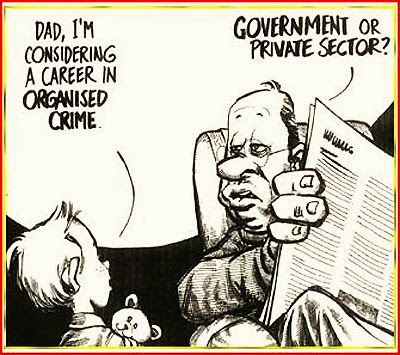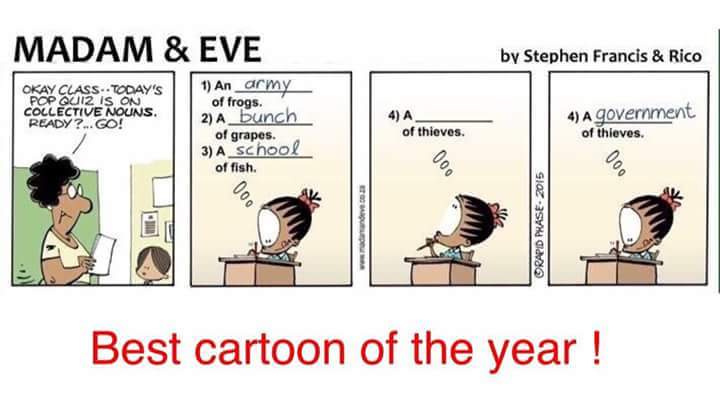I am not sure if all Malaysians actually envy the person occupying the position of Prime Minister of Malaysia. Well, many fought for the position, some even suffered because of being next in line to it.
I am not sure if anyone noticed Najib looks older than his age, and I would say, largely because of the heavy responsibilies of having been a Minister, Deputy Prime Minister and now finally Prime Minister (destined, as his wife reminded us earlier) over more than 20 years.
He is now in the process of deciding who should be in, and who should be out, while the hopefuls await eagerly for good news but at the same time, preparing for the bad news just in case. Some would enjoy the power in the position of being able to decide who makes or breaks, who would have a chance to make millions and who would not. But I am sure some people would not like the idea of being put in such a difficult position of having to build new bridges and burning some old ones.
DAP's Liew Chin Tong has a good write-up on the history of our cabinets since Independence. As he has pointed out, certain ministries seem to be in peculiar situations, not exactly the best for best efficiency and performance.
Malaysia-Today.net - Cobwebs in our Cabinet
Malaysia has had no change of government since independence in 1957, thus there is hardly any impetus for major shake-up of the system.
Whenever a new leader takes office or a political leader needs to resolve a certain problem, layer after layer of bureaucracy is added on without removing redundant ones.
Najib has his fair share of the blame. For example, when he took over the finance portfolio last year, a project management unit (PMU) was formed in the Treasury; presumably the Implementation Coordination Unit (ICU) of the Prime Minister's Department had failed the task of dishing out contracts to Umno cronies quickly.
It is doubtful how lean and mean Najib's cabinet can be, given that the prime minister is governing through a grand coalition that has many powerful ministerial aspirants.
The cabinet of Tunku Abdul Rahman had only 13 ministers. The word 'deputy minister' was unheard of until Tun Razak formed the first Barisan Nasional cabinet after the 1974 election with 22 full ministers and 16 deputy ministers.
When Tun Dr Mahathir Mohamad left office in 2003, his front bench has 76 members.
Tun Abdullah Badawi's post-2004 election saw a 93-member administration - the largest ever in history.
Although he managed to slim down the obese cabinet and its deputies, it was still a bloated 67-member bench.
…
First, the spirit of checks-and-balances is essential to any democratic system. The prime minister in the Westminster model is supposed to be 'first among equals' and not a king or president with absolute power.
One important convention is that the prime minister does not hold concurrent finance portfolio as the latter's brief is to safeguard state funds while the top man's job is to spend.
Najib should relinquish the finance portfolio and appoint a full-time minister. Second, there is a tendency to seek prime ministerial attention on everything, resulting in a huge prime minister's department covering everything from Islam to maritime enforcement.It's time to rationalize the messy puzzle.
Many agencies currently placed under the prime minister's department should have been independently run and answerable to the Parliament such as the Election Commission, the Public Complaints Bureau, the Istana, and, ironically, the parliamentary service itself.
Third, partisan or 'cronistic' interests should not be built into ministerial arrangements.
Institutional integrity and efficiency supersedes all private profiteering considerations.
A case in point is public transport.
Not many people realize that the transport ministry has no say over public transportation. The Commercial Vehicle Licensing Board is the turf of the Entrepreneurial and Cooperative Development Ministry, with the objective of using public transport licensing power to build a Bumiputra commercial and industrial community (BCIC).Another example is the governing of licensed money lenders, who often double-up as loan sharks.
Strangely, money lenders, who form a kind of financial institution, are under the local government and housing ministry, not finance ministry. The only explanation I can think of is that the money lenders, and by extension, the loan sharks, are more often than not, MCA supporters.
Finally, racial division of labour is not needed in an urbanised modern world.
Prior to 1970s, it is easy to segregate spatial existence racially, with most Malays living in the kampongs, Indians in the estates, and Chinese either in the urban sectors or new villages.
After half-a-century of formation, National and Rural Development Ministry still handle affairs of Malay villages while Chinese villages' affairs by MCA's Local Government and Housing Ministry.
Labour is still seen as an Indian issue, thus a MIC minister is tasked to oversee it.
Malaysia is now an urbanised nation with at least 65 per cent of its multiethnic population living in the cities. Their basic needs, such as transport, housing and jobs, are similar regardless of race and religion.
A 'new deal', as hyped by the media of Najib's premiership, must clean the cobwebs in our cabinet from the start.
Liew Chin Tong is the DAP MP for Bukit Bendera.
Link
How should we judge a government?
In Malaysia, if you don't watch television or read newspapers, you are uninformed; but if you do, you are misinformed!
"If you're not careful, the newspapers will have you hating the people who are being oppressed, and loving the people who are doing the oppressing." - Malcolm X
Never argue with stupid people, they will drag you down to their level and then beat you with experience - Mark Twain
Why we should be against censorship in a court of law: Publicity is the very soul of justice … it keeps the judge himself, while trying, under trial. - Jeremy Bentham
"Our government is like a baby's alimentary canal, with a happy appetite at one end and no
responsibility at the other. " - Ronald Reagan
Government fed by the people

Career options

I suggest government... because nobody has ever been caught.
Corruption so prevalent it affects English language?

Corruption is so prevalent it affects English language?
When there's too much dirt...

We need better tools... to cover up mega corruptions.
Prevent bullying now!

If you're not going to speak up, how is the world supposed to know you exist? “Orang boleh pandai setinggi langit, tapi selama ia tidak menulis, ia akan hilang di dalam masyarakat dan dari sejarah.” - Ananta Prameodya Toer (Your intellect may soar to the sky but if you do not write, you will be lost from society and to history.)
No comments:
Post a Comment